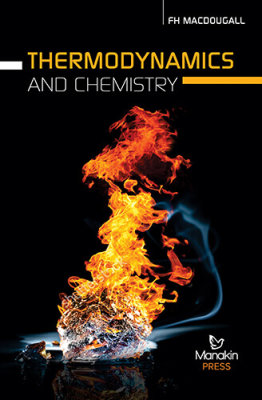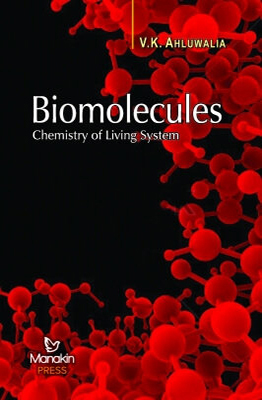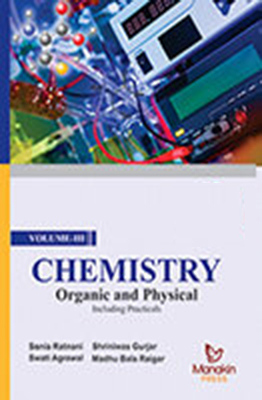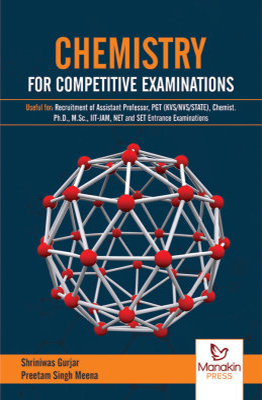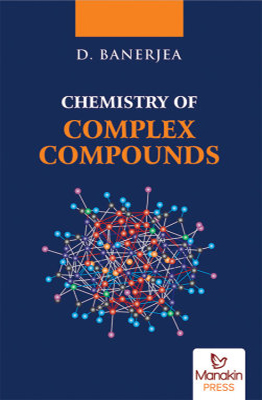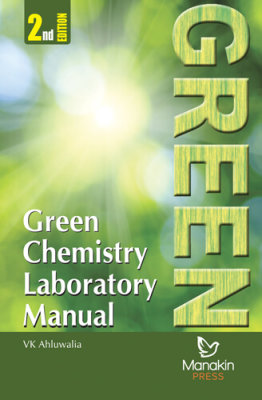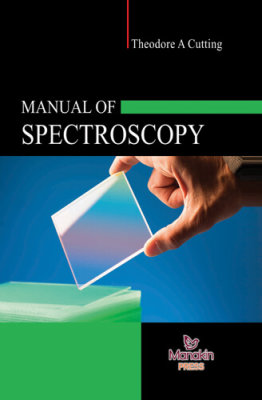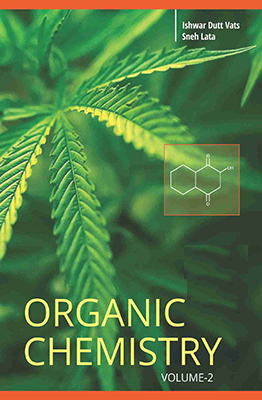F.H. Macdougall | Category: Chemistry
Binding Type: Hard Binding
Book Details
ISBN: 9789386677358
YOP: 2018
Pages: 412
Order also on
No one can write on thermodynamics without being deeply influenced by Willard Gibbs and Max Planck. The writings of the former will always be the admiration (and sometimes the despair) of the student of thermodynamics on account of the extreme rigor and completeness with which he discusses the subject, while Planck in his Lectures on Thermodynamics has given a treatment which is a model of conciseness, accuracy, and logic. It has been my endeavor to write a book that, in addition to being accurate, logical and sufficiently rigorous, will furnish the student with numerous examples of the application of the principles of the science. It is with this object in view that four chapters have been devoted to the phase rule and its applications. According to the point of view adopted in the following pages, thermodynamics is an empirical science, i.e., it is based on generalizations from experience which find their expression in the First and Second Laws. Hypothetical views as to the constitution of matter or the nature of heat are not used in the development of thermodynamic principles and hence these principles are as certain as the experimental facts on which they are based. It is of course possible to develop the subject on the basis of the kinetic theory, assuming heat to be the kinetic energy of molecules. This method has many advantages and may lead to a more intimate knowledge of nature than is gained when we refrain from such hypothetical aids. On the other hand, by developing thermodynamics empirically, we can be sure that all our results will be expressed in terms of quantities such as temperature, pressure, volume, etc., which can be determined directly by experiment. It is true that we shall frequently apply our empirical thermodynamic principles to problems which are set forth in the language of the molecular theory, as in the case of the study of one.
I- TEMPERATURE
II- ACTUAL CASES
III- HEAT
IV- IV-THE FIRST LAW or THERMODYNAMICS
V- APPLICATIONS OE THE FIRST LAW I
VI- APPLICATIONS or THE FIRST LAW II, THERMOCHEMISTRY
VII- THE SECOND LAW or THERMODYNAMICS
VIII- DEDUCTIONS non THE FIRST AND SECOND LAWS
IX- IX- THERMODYNAMIC FUNCTIONS AND THERMODYNAMIC EQUILIBRIUM
X- FUSION, EVAPORATION AND SUBLIMATION
XI- THE PHASE RULE
XII- APPLICATIONS OF THE PHASE RULE I
XIII- APPLICATIONS OF THE PHASE RULE II
XIV- APPLICATIONS OF THE PHASE RULE III
XV- CHEMICAL EQUILIBRIUM
XVI- CHEMICAL EQUILIBRIUM IN LIQUID SOLUTIONS
XVII- ELECTROMOTIVE FORCE
XVIII- SURFACE TENSION AND ADSORPTION
XIX- RADIATION, QUANTUM THEORY, NERNST HEAT THEOREM
No one can write on thermodynamics without being deeply influenced by Willard Gibbs and Max Planck. The writings of the former will always be the admiration (and sometimes the despair) of the student of thermodynamics on account of the extreme rigor and completeness with which he discusses the subject, while Planck in his Lectures on Thermodynamics has given a treatment which is a model of conciseness, accuracy, and logic. It has been my endeavor to write a book that, in addition to being accurate, logical and sufficiently rigorous, will furnish the student with numerous examples of the application of the principles of the science. It is with this object in view that four chapters have been devoted to the phase rule and its applications. According to the point of view adopted in the following pages, thermodynamics is an empirical science, i.e., it is based on generalizations from experience which find their expression in the First and Second Laws. Hypothetical views as to the constitution of matter or the nature of heat are not used in the development of thermodynamic principles and hence these principles are as certain as the experimental facts on which they are based. It is of course possible to develop the subject on the basis of the kinetic theory, assuming heat to be the kinetic energy of molecules. This method has many advantages and may lead to a more intimate knowledge of nature than is gained when we refrain from such hypothetical aids. On the other hand, by developing thermodynamics empirically, we can be sure that all our results will be expressed in terms of quantities such as temperature, pressure, volume, etc., which can be determined directly by experiment. It is true that we shall frequently apply our empirical thermodynamic principles to problems which are set forth in the language of the molecular theory, as in the case of the study of one.
I- TEMPERATURE
II- ACTUAL CASES
III- HEAT
IV- IV-THE FIRST LAW or THERMODYNAMICS
V- APPLICATIONS OE THE FIRST LAW I
VI- APPLICATIONS or THE FIRST LAW II, THERMOCHEMISTRY
VII- THE SECOND LAW or THERMODYNAMICS
VIII- DEDUCTIONS non THE FIRST AND SECOND LAWS
IX- IX- THERMODYNAMIC FUNCTIONS AND THERMODYNAMIC EQUILIBRIUM
X- FUSION, EVAPORATION AND SUBLIMATION
XI- THE PHASE RULE
XII- APPLICATIONS OF THE PHASE RULE I
XIII- APPLICATIONS OF THE PHASE RULE II
XIV- APPLICATIONS OF THE PHASE RULE III
XV- CHEMICAL EQUILIBRIUM
XVI- CHEMICAL EQUILIBRIUM IN LIQUID SOLUTIONS
XVII- ELECTROMOTIVE FORCE
XVIII- SURFACE TENSION AND ADSORPTION
XIX- RADIATION, QUANTUM THEORY, NERNST HEAT THEOREM
| Weight | 0.619 kg |
|---|---|
| Dimensions | 22 × 14.5 × 2.5 cm |
| yop |
2018 |
| subject-category |
Chemistry |
| isbn |
9789386677358 |

